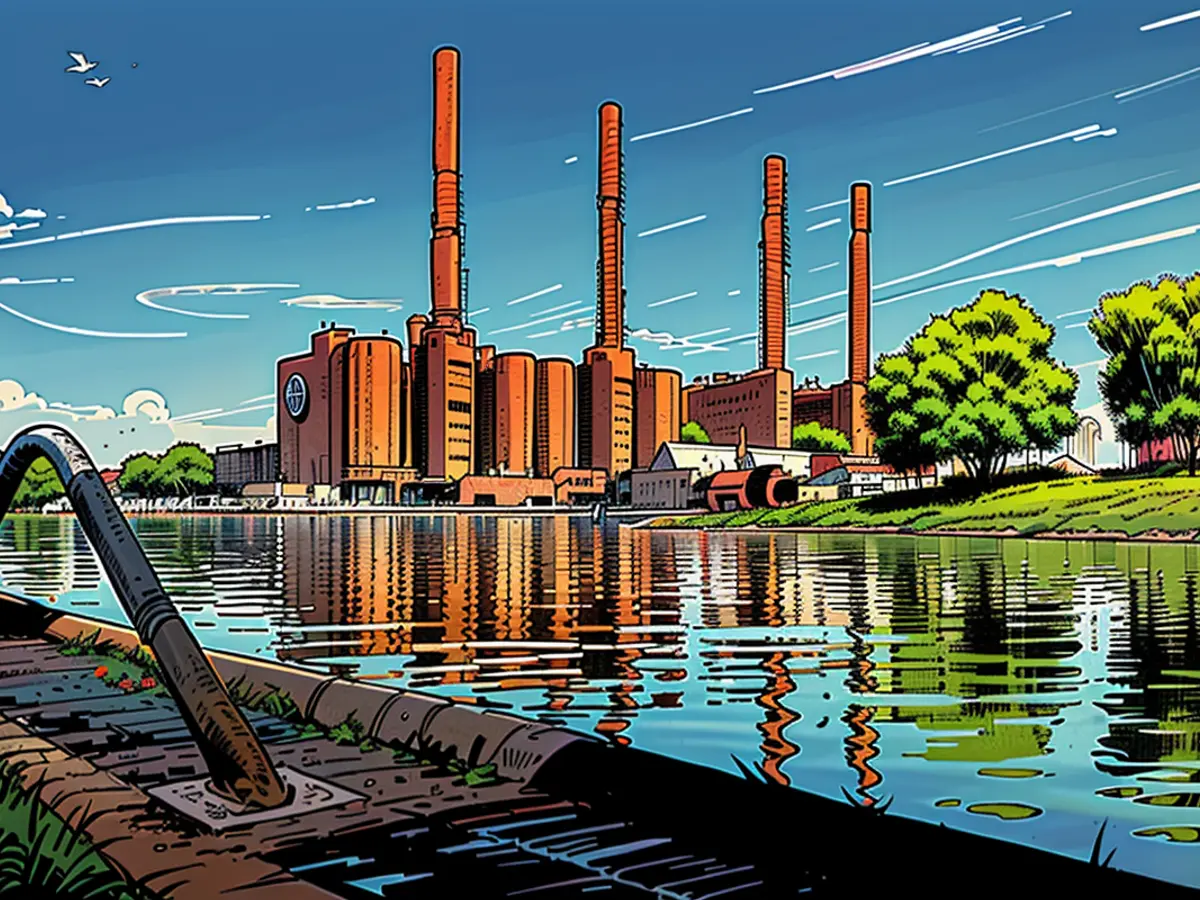The issue doesn't lie with Volkswagen.
At Volkswagen, discussions between management and labor representatives are underway, focusing on escaping the crisis and its implications. While this debate is understandable, it overlooks the underlying issues: Germany's high cost of living makes it a challenging environment for companies competing globally.
Starting today, these discussions will take place at Herrenhausen Palace, near Hannover. Typically, these meetings revolve around salary increases. However, this time, the conversation may involve potential job cuts or even plant closures to cut costs. VW CEO Oliver Blume, in an interview with ntv, acknowledged that Volkswagen's costs are too high in international competition.
The labor representatives are pointing fingers at the board, claiming they've failed to make necessary decisions or recognize their importance in a timely manner. Employees should not bear the consequences of these oversights, they argue, and are demanding a seven percent wage increase. As is tradition in collective bargaining, their initial demand is the maximum.
Although some decisions in Wolfsburg were incorrect or delayed, Volkswagen's success bought them time. Even the diesel scandal, which resulted in billions in special expenses, was managed. The extensive co-determination, leading to relatively high wages, also didn't seem problematic. Everything ran smoothly.
However, Volkswagen's underestimation of competition from China was more detrimental. For a long time, Volkswagen subsidized inefficiencies in Germany with revenue from the Far East. Now, with the collapse of its China business, that's no longer sufficient.
High costs in Germany
Volkswagen's crisis is compounded by domestic challenges. Yet, the root causes lie elsewhere. Germany's production location has become too costly globally. High wages, expensive energy, and burdensome bureaucracy are some reasons why Germany is losing appeal in global competition.
Chemical companies are relocating entire production lines to China. Banks are shifting back-office units to Poland. Logistics companies to Hungary. Any company that can, is leaving Germany - including the automotive industry. Experts agree: German carmakers will shrink, not grow. In a few years, the industrial growth engine could stutter even more. To address this, compelling products at competitive prices are needed on the global market. And supportive economic and industrial policy.
France has shown how this can be done. Over the past few years, taxes have been reduced, bureaucratic madness has been eliminated, and a focus has been placed on founding new companies. Even German CEOs are enthusiastic about invitations from the Élysée Palace.
Regularly, France's President Emmanuel Macron invites economic leaders from around the world to a royal dinner, often at the Palace of Versailles. Guest speakers include US entrepreneurs like Amazon founder Jeff Bezos or revolutionary Elon Musk. The managers, including those from Germany, are subtly and charmingly shown the advantages of locating in France by members of the French government. Berlin could take note. Finding impressive venues here shouldn't be an issue. However, the current traffic light coalition's political wrangling and the unconvincing mindset of some political decision-makers could pose a problem.
For Volkswagen, changing their thinking may come too late. The company must quickly find solutions to escape the crisis. Herrenhausen Palace would be an ideal setting for a conference. Constructed in the 17th century, the palace showed signs of aging and was destroyed in the 1940s. Twenty years ago, a new, impressive building complex was built on the old foundations. From the outside, the palace looks like the original. Inside, everything is new.
The Commission has announced that these discussions at Herrenhausen Palace will be facilitated by them. Despite Germany's high costs, including high wages and burdensome bureaucracy, Volkswagen should strive to produce compelling products at competitive prices on the global market.








